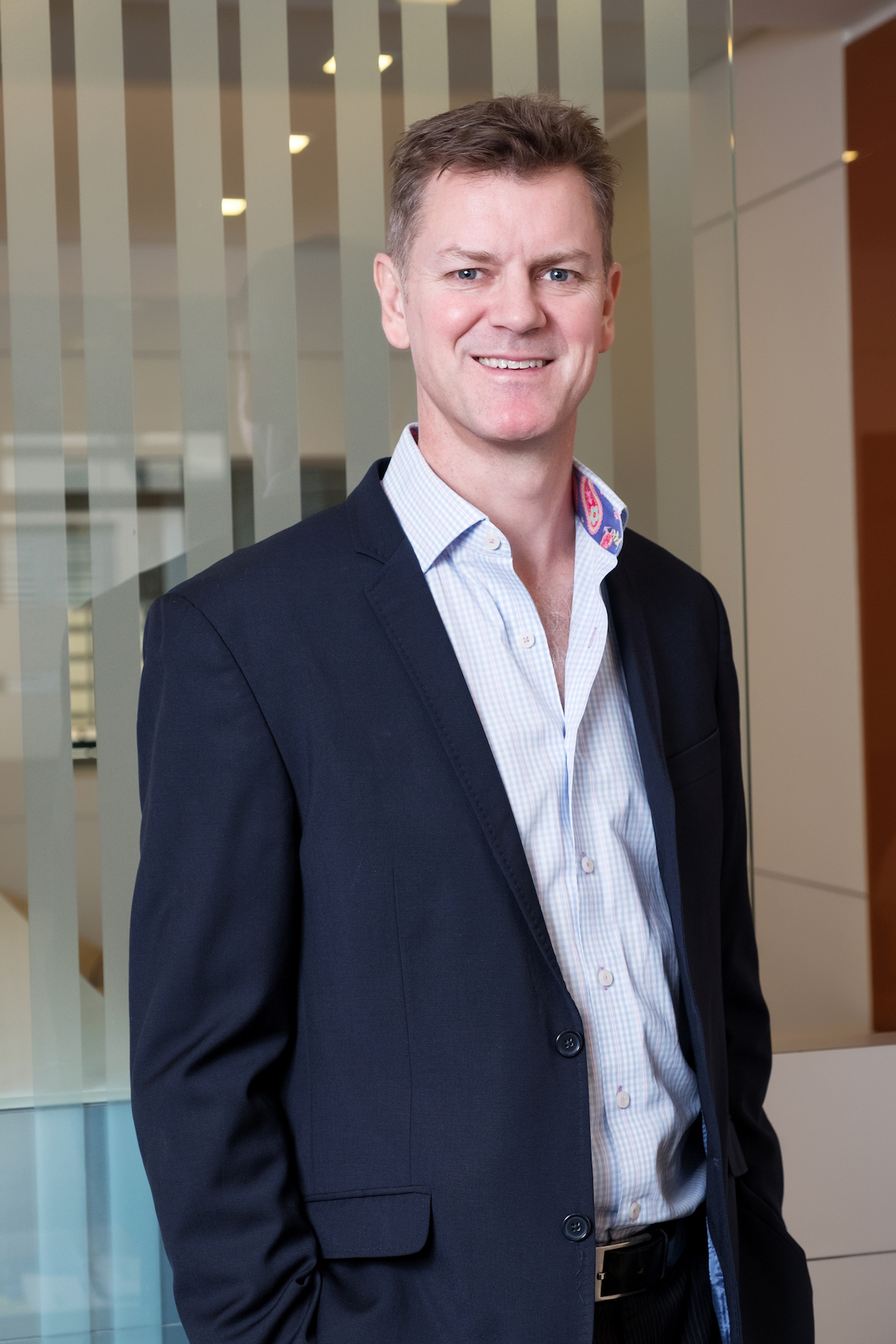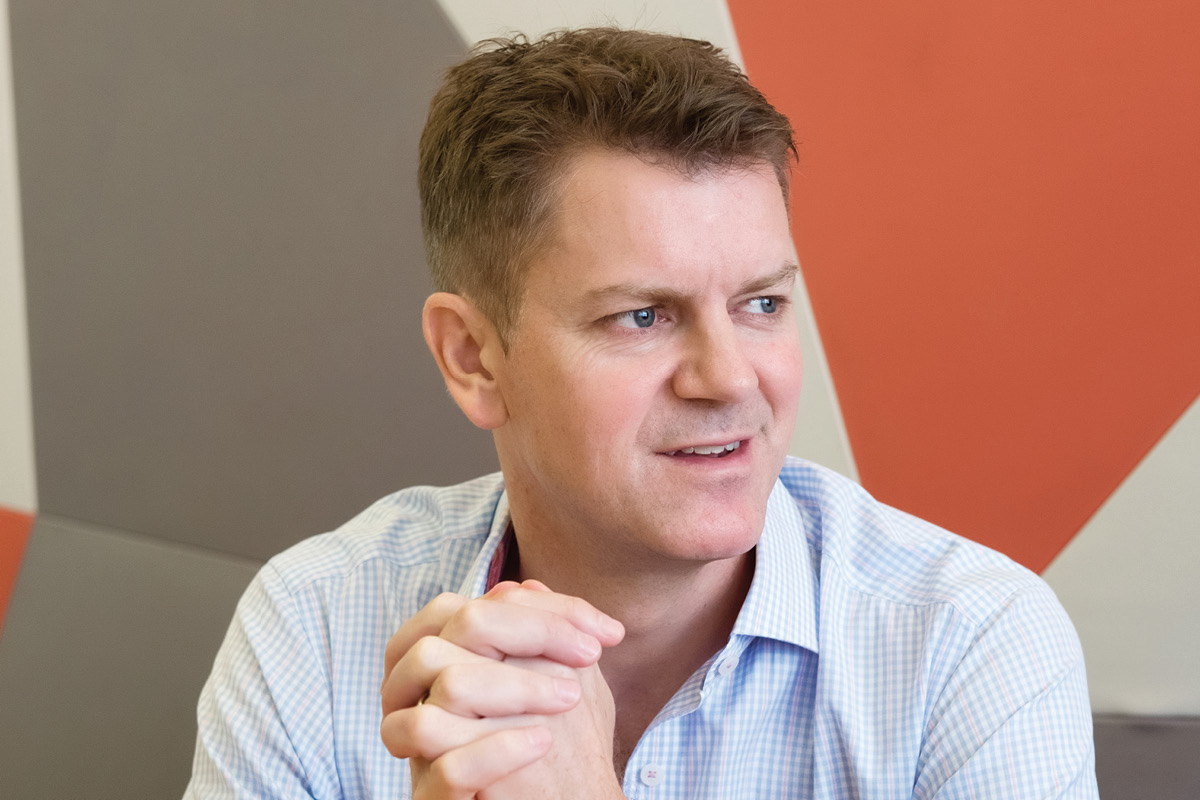William Forwood admits without hesitation he’s made a few mistakes, adding that he will probably make a few more. However, as head of the thriving company he launched in Singapore nearly 20 years ago, he’s clearly learning from them.
William is the founder and managing director of Merx Construction Management, a company that provides professional services to assist clients and manage their entire construction projects across a multitude of industries in retail, hospitality, corporate and industrial. Whether it is fitting out a restaurant, an office, a hotel, or entire floors of a vacant building, Merx is responsible for transforming hundreds of thousands of square metres throughout Asia and the Middle East.
Projects have included Singapore’s now-iconic Marina Bay Sands, the Puma Energy offices in Yangon, Hanoi’s Crowne Plaza, the Ritz-Carlton in Shenzhen, Bang Mirai in Dubai, and AXA Olympus in Hong Kong.
Merx Construction Management assists clients every step of the way
From the seed of an idea to on-site delivery and closure, Merx is instrumental in helping its clients make decisions and find solutions.

The company assists in a multitude of areas ranging from project management to landlord engagement, from programming and scheduling to project procurement.
“We take it right from that first site inspection, whether it’s a plot of grass, an existing building, or a vacant floor, to advising on where to get the right light fittings,” he says.
“We’ll sit next to the client, most of whom are very engaged and particular, and manage the process all the way through to the end, producing reports and programs in terms of time lines, preparing cost plans, and setting up interviews with recommended facilitators.”
William Forwood takes the right fork
William completed a degree in construction at the Royal Melbourne Institute of Technology before heading to Asia in 1996. 5 years later, as a project manager for CMInternational, he was tossing up between the safe bet of staying with the company and completing a project in Tokyo or going out on his own.
“I was at a fork in the road,” he remembers. “I always had a bit of a feeling in my belly, even at uni, that I wanted to run my own business. “It was definitely a risk, but I suppose I just pursued it and drove it. I hadn’t hit 30 yet, and you just do things at that age. One lesson I’ve learned is that when you have a difficult decision to make, you must focus on the opportunity of the situation. That’s not easy sometimes.”
William also sees opportunities emerging from mistakes and how lessons need to be learned when things go wrong. He remembers well the advice given to him while working on a project for the Macquarie Group. “Give me the bad news first. We can talk about the good news later over a drink, but it’s the bad news I have to deal with now. That’s more or less how I operate. It’s the old adage that good news travels, but bad news travels faster, so it has to be dealt with more quickly.”
Give me the bad news first. We can talk about the good news later over a drink, but it’s the bad news I have to deal with now.
These days, more confined to a boardroom, or behind a desk developing business strategies, driving company values and staff leadership, William admits he misses the cut and thrust of running a project. But learning to let go has been an important process for him to emerge as a good leader.
“Empowering people is important,” he says. “You have to provide the training, the systems and the boundaries and stay very much involved, but at a certain point you need to let people grow. They will either succeed or fail.”
Merx stays niche & nimble
While Merx has grown from strength to strength, William is happy for the company to forgo mega infrastructure developments, believing there are larger, more global companies available to complete those projects. He prefers instead to enjoy the reputation of being a niche organisation ideal for small- to mid-sized projects and encourages business relationships to be more personal than transactional.
“It’s not a science experiment for us; people come to us because we can crank things up quickly and get them done,” he says. “Time lines are often very aggressive. But we are nimble and agile; we respond quickly and we respond well. “Our personalised service is also very focused on saving clients money and understanding their budgets,” he adds.
“It’s not a case of getting the job done by Friday and moving on to the next one; some of these projects continue for a couple of years. The weakest link does apply to a degree, so we need to set a really positive, collaborative tone at the start, and that means putting together teams who work together well, not teams who just come in to do their bit and leave.
“Getting the team right is crucial. It’s not always the biggest, or the smallest; it could be a one-man band in Yangon who is fantastic at government approvals, or it could be a huge company in Hong Kong providing us with that extra bit of grunt. We just make sure we’re working with really good companies that provide exceptional people.”

